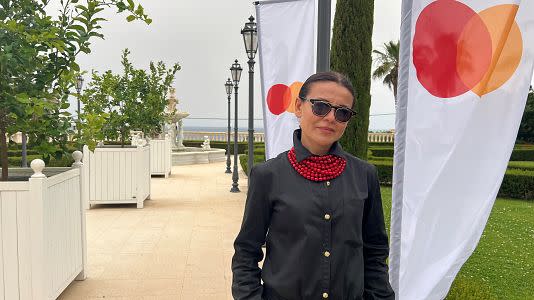The Experience Economy: Consumers prioritise memories over material goods
Consumers today are increasingly spending their money on experiences such as music events and travel, rather than on physical products. This trend, highlighted by research from the Mastercard Economics Institute, signals a significant shift in consumer behaviour.
Beatrice Cornacchia, EVP of marketing and communications for Europe, explains that marketers need to rethink their go-to-market strategies in response to this ‘memory-making’ trend.
“25 years ago Mastercard made a bold move. We said to people, ‘There's some things that money can't buy, for everything else there is Mastercard,” Cornacchia explains.
Mastercard was right with its bold move. Their research indicates that across Europe splashing out on experiences such as travel and dining out have increased to 22% of total spending in 2023, up from 19% in 2019. In contrast, spending on material goods has remained stable.
Experiences over products
Experiences such as travel, live music events, outdoor adventures and dining out are among the most popular activities for consumers. These experiences evoke emotions and create lasting memories, which likely contributes to their growing appeal.
Several factors are driving this shift, including generational changes, an increased emphasis on well-being and growing environmental awareness.
The COVID-19 lockdowns and geopolitical uncertainty have also played a role by highlighting the value of creating good memories, something which cannot be taken away, suggested Cornacchia.
What does the experience economy mean for marketers?
Mastercard emphasises that it's crucial for marketers to move beyond traditional marketing and create special touch points by understanding what is important to consumers. This can involve integrating additional services, perks, and personalised elements that enhance the overall customer journey, such as lounge access.

Speaking on Mastercard's approach to sales and advertising, Cornacchia states: "I don't need to sell anything to my consumer. I just need to make their journey easier, seamless, and ideally, priceless.
“For example, if a consumer is travelling, we know that travel is one of their most exciting passions. It's my responsibility as a global brand to understand each consumer touchpoint, starting from the discovery phase. My role is to give you ideas about the best locations to visit based on the customer’s preferences," Cornacchia continues.
Mastercard aligns its marketing budget with experience-type situations too. For instance, the American payment card company is a longstanding partner of dozens of Europe’s renowned entertainment and sports institutions such as the UEFA Champions League Final, Roland-Garros and the Festival de Cannes.
Communicating the impact internally
This strategy isn’t just about marketing and external communications - it's about sharing the story of spending and how it relates to the bottom line internally.
“Two days before a Taylor Swift concert in the US and one day after, 68% increase in the food and beverage revenues in the cities close to the concert. 40% increase on the accommodation revenues," Cornacchia said.
“So these are numbers that are converted into return on investment, into profitability,”
"This is how you can demonstrate the bottom line to the C-suite and show the effect of a marketing strategy because that’s what consumers want, that’s what they are spending on.”
Watch the video above to learn more about the experience economy.
You can see more content from Cannes Lions here.

 Yahoo Finance
Yahoo Finance 